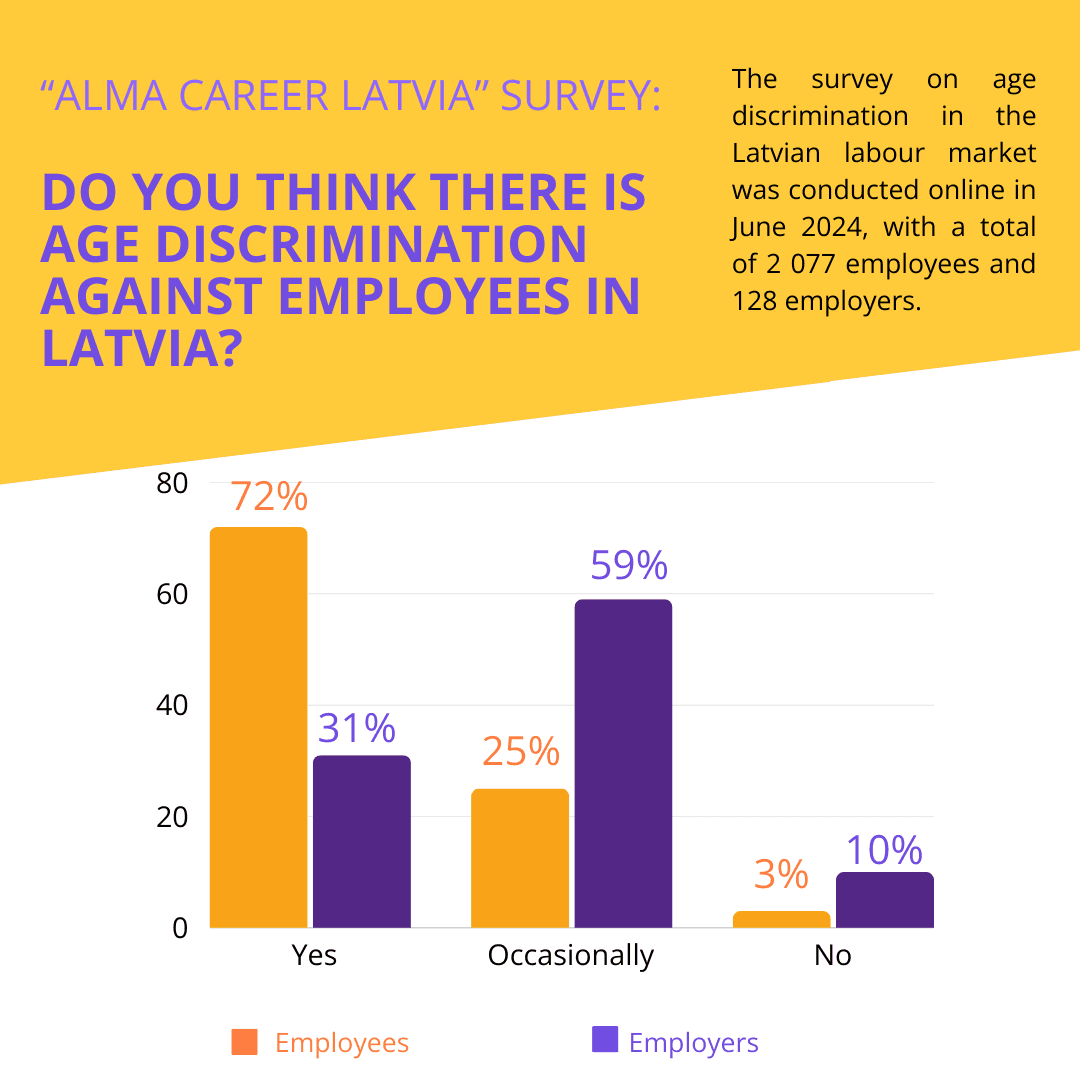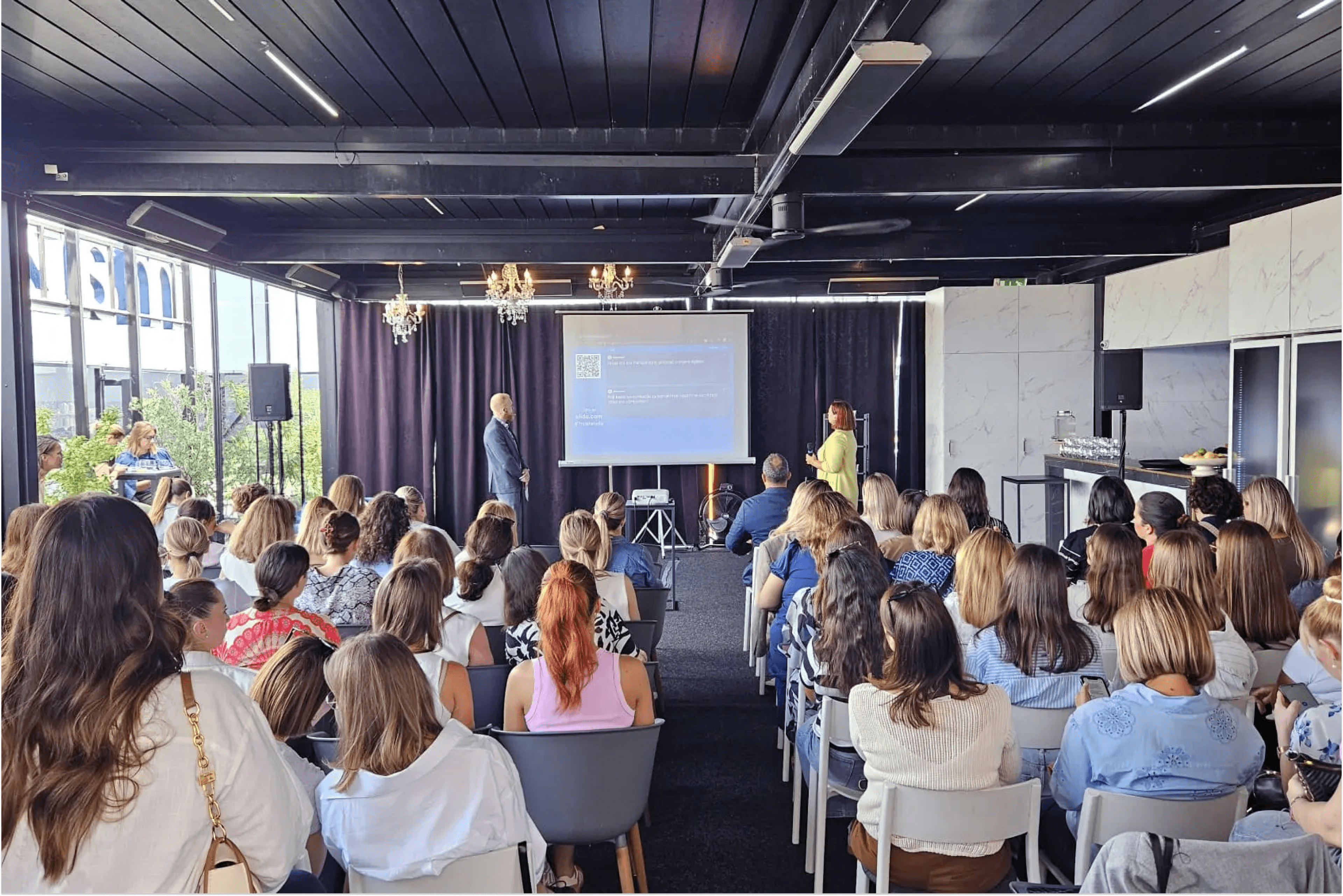Survey: More than half of Latvian employees have experienced age discrimination at their workplace
The recruitment company “Alma Career Latvia” in cooperation with the services company “PwC Latvia” have conducted a study on age discrimination in the Latvian labour market, which shows the opinions and perspectives of both employees and employers on this topical issue.
The results show that 72% of employees consider age discrimination to be a major problem in the labour market. One in four respondents (25%) says that such cases occasionally occur, while only 3% believe there is no age discrimination in the labour market. However, employers are much less likely to admit that age discrimination exists - 31% confirm it, 59% indicate that it can happen occasionally and only 10% believe that it does not exist.

Comparison of employees' and employers' views on the existence of age discrimination in the labour market
Of all the employees surveyed, 58% have experienced age discrimination in their workplace, 31% deny it and 11% are unsure about the issue. On the other hand, 81% of employers say that there has never been a case in their company where an employee has expressed dissatisfaction relating to age discrimination, while 14% say that such exceptions are rare and 5% frequently encounter such situations.
The majority of employees (85%) say that age discrimination already occurs during the recruitment process, 43% of whom encounter it frequently and 24% say it rarely happens. For employers, 13% say that a candidate's age very often influences their decision when making a job offer, 62% say it happens occasionally and 25% say that age has never been a factor in their decision-making process.
Among employees who have experienced age discrimination, it has most often manifested itself in the form of being rejected for a job offer regardless of their experience and qualifications, being offered a lower-paid or less important job, the organization's orientation towards younger employees, a sense of not belonging, the organization's perception that older employees will not be able to learn new technologies and digital skills and an unsuitable working environment for older employees.
Employees and employers suggest a few solutions to reduce age discrimination in the labour market, including assessing employees based on their skills and competencies rather than age, lifelong learning and retraining programs, and social education campaigns. Respondents also point to the need to review legislative requirements to limit discrimination and support tax incentives for employers hiring older workers. In addition, the need for flexible working conditions, the promotion of intergenerational cooperation, anonymous selection processes, and public support programmes are highlighted.
"The survey results clearly show that age discrimination is a significant issue that hinders labour market growth and limits the potential of organizations, losing valuable human resources and the opportunity to take full advantage of diversity and inclusion benefits. Given the aging population and the increasing competition for talent, employers should promote age inclusiveness by focusing on assessing employees' skills and competencies to ensure a fair and diverse working environment. This requires employees to continuously learn and improve their skills to remain competitive in the labour market. There is also a need for greater government involvement in promoting lifelong learning and retraining initiatives and tax incentives for employers hiring older workers," says Aivis Brodiņš, CEO of Alma Career Latvia.
The survey on age discrimination in the Latvian labour market was conducted online in June 2024, with a total of 2 077 employees and 128 employers.

Why Training Alone Won’t Keep Employees from Leaving

Transparency, Data, and People: What We Learned at the HR Time Gathering in Zagreb

News for the User Experience Community: UX Research Academy for Everyone – Completely Free













